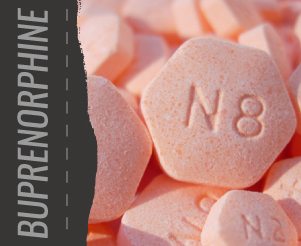Opioid drugs include illicit drugs such as heroin and a variety of prescription painkillers, such as codeine, fentanyl, hydrocodone, and oxycodone. Each drug within this class has the potential for use and addiction; due to this, opioid withdrawal may be severe. Opioid drugs are dangerous and can cause physical and mental illness and disease, overdose, and death. Despite these elements, and because of them, help exists. At Swift River, our expertly trained staff can assist you in overcoming this trying time, while supporting you on your path to sobriety.
What Are Opioids?
As previously noted, opioids are a class of drugs which include heroin and numerous prescription opioid painkillers. Regardless of the drug, every drug within this class shares a common characteristic—the way by which they impact your brain. This mechanism of action is one reason why they make such effective painkillers. Used properly, under supervision, opioids are typically safe when used in the short-term for pain management. In addition to this pain-relieving effect, opioid drugs produce varying levels of euphoria—an intense state of pleasure that drug users seek. This is also due to the way these drugs alter your brain’s chemistry. It is these changes which create dependence, tolerance and may set the stage for addiction.
What Is Dependence And How Does It Relate To Addiction?
In order to better understand the effect of withdrawal on your body, we must first understand how opioids work within circumstances of use and addiction. You may be surprised to learn that our brain and bodies actually contain receptors for our own naturally occurring versions of opioid chemicals. When a person uses an opioid, this drug performs a similar process, thus decreasing the need for your body to produce its own versions. The issue arises when, after prolonged use, a person develops a dependence. As more and more of the used opioid floods the user’s system, the brain becomes reliant on it to fill these roles. If a person is addicted, they are dependent. It is due to this dependence that a person experiences withdrawal, should they suddenly stop using the drug.
What Are The Signs Of Opioid Withdrawal?
Opioids are powerful drugs; as your body attempts to adjust to their absence your system can become extremely overwhelmed. Due to this, various physical and mental systems become imbalanced or go into overdrive. As referenced from MedlinePlus, the symptoms include: Early-onset symptoms:
- Achy muscles
- Agitation
- Anxiety
- Becoming sweaty
- Insomnia
- Intense yawning
- Runny nose
- Teary eyes
Late-onset symptoms:
- Abdominal cramping
- Becoming nauseous
- Diarrhea
- Dilated pupils
- Goosebumps
- Vomiting
MedlinePlus also explains that these symptoms, alone, are not life-threatening. However, should a person vomit and aspirate it (breathing the vomit into the airway or lungs), they could suffocate and die.
Is It Dangerous To Withdrawal From Opioids On Your Own?
Despite the prevalence of do-it-yourself remedies and “detoxes” on the internet, withdrawing from opioids without professional direction can be uncomfortable, painful and even dangerous. As these symptoms become unbearable it can be very tempting for an opioid user to return to drug use to stop them, either during withdrawal or after. A detox program protects your quest for sobriety. Within a good treatment program, a person will progress directly from detox to opioid use disorder treatment. This supports them during one of their greatest times of need—directly after detoxification—when cravings can become very intense. Swift River offers this dual support. After a medical detox, a person’s tolerance is reduced. Without this adjunct treatment, an unattended person who relapses within this state faces an increased risk of fatal overdose. Because of this, our program not only enhances your chances of sobriety, but it may even save your life.
While withdrawal is the set of symptoms which appear as a person stops using a certain drug of use, detox is the way of safely managing these symptoms. Since your body and brain are dependent on the opioid drug, we need to gradually wean you off the addictive substance. In doing so, the symptoms of withdrawal decrease in severity. This allows your body more time to flush the drug’s harmful toxins from its system, giving it a greater opportunity to strengthen itself and regain balance prior to treatment. Prior to a detox, treatment staff will do a full assessment to determine a person’s physical, mental and emotional health. If there are any co-occurring mental health disorders or physical illness which require our care and treatment, we will commit our energies to take care of you in these ways as well.
How Long Does It Take To Detox From Opioids?
Even within a detox program, the withdrawal will still be tough. But, in comparison to the experiences of those who go without this support, it is in many ways more comfortable, less stressful, less painful, safer and our clients witness a significant reduction in drug cravings. The timeline and intensity of withdrawal are dependent on several things, including:
- The drug(s) of use
- The intensity of drug use (dose/frequency of use)
- How long a person used the drug for
- Whether any other drugs were used together with the opioids
- State of physical health
- A person’s unique biological, genetic, and physiological makeup
Due to this, the exact time it takes to detox may vary. Clinical staff will continuously monitor and evaluate you, adjusting treatment methods as necessary.
What Is Medication-Assisted Treatment?
This combination of behavioral therapy and medication ensures that a person’s mental and emotional health is supported within this transitional time. Our staff will administer certain medications and counseling as needed to address your specific concerns, including those which address any co-occurring mental health disorders such as depression and anxiety. As we’ve discussed, your body goes into withdrawal because your body and brain suddenly face the absence of the opioid drug which they were dependent on. Instead of allowing this to happen quite suddenly, and painfully, medication-assisted treatment eases a person through withdrawal. This gives a person’s brain a chance to acclimate to these changes. At Swift River, for opioid addiction, this is typically accomplished by aid of buprenorphine.
What Is Buprenorphine?
Buprenorphine, an opioid partial agonist, is considered by the National Institute of Drug Use to be an evidenced-based pharmacotherapy (medication used for treatment). What this means is that buprenorphine has a proven capacity to work on your brain’s opioid receptors in a way similar to opioid drugs of use. The benefit is that it does this without creating the intensity of respiratory depression or the euphoria which illicit drug users seek from other, more intense opioid drugs. Due to this similarity, this drug can be used as a replacement medicine to taper a person off of opioids. This drug is used to treat both heroin and prescription drug use. Within detox it has a dual purpose—it reduces symptoms of withdrawal and decreases a person’s cravings.
What Else Helps Ease Opioid Withdrawal Symptoms?
While medications can help, there are other critical components. Our staff will provide: Whole-body care: Often, due to an addictive lifestyle, a person comes to use with poor physical health and nutritional imbalances. We take great care to ensure our clients stay properly hydrated, while also addressing any other imbalances which may be contributing to their poor physical or mental state. Counseling: During detox, we will begin to address any negative mindsets or emotions which may have developed during addiction. Our staff will work with you or your loved one to fight this negativity. We will begin to teach you more positive and empowering thoughts which pave the way for treatment. Compassionate Support: Our caring staff will do everything in their power to allay any fears, despondency, confusion or anger you may be struggling with letting go of. Just having a person by your side to listen, offer reassurance, or to distract you can work wonders during this time.
We Can Help You Move From Fear To A More Fulfilling Life
Within addition, it can be hard to contemplate a life without an opioid drug, especially when you think about the hardships of withdrawal. While detox will still be an intensely trying process, our program makes if far more comfortable, less stressful and safer than doing it alone. In addition, you get to progress seamlessly into our other comprehensive addiction treatment therapies. If you are trying to get off of heroin or an opioid painkiller but you’re not sure how to start, let us help you. Additionally, if you want to help loved one progress to a sober and more fulfilling life, Swift River can help you to support them in these goals. Contact us now.












